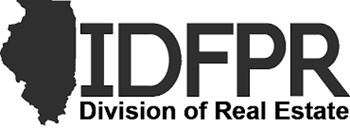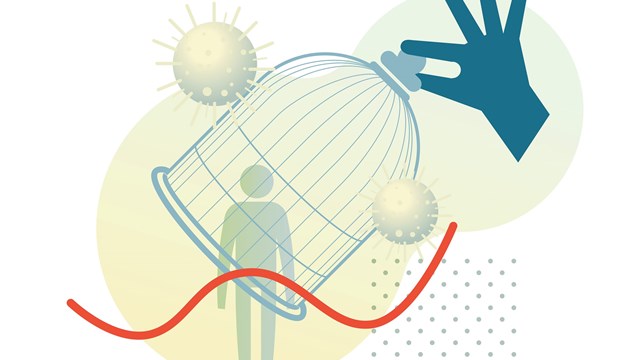
The Illinois Department of Financial and Professional Regulation (IDFPR)’s Division of Real Estate recently released a set of frequently-asked questions and guidelines for condominium and common interest community associations as the state and its municipalities move to reopen and resume day-to-day operations during the ongoing coronavirus pandemic.
Broadly speaking, the IDFPR’s mission is to “Protect the residents of Illinois, ensure the safety and soundness of financial institutions, ensure that competent professionals are licensed to provide services to the public, and enhance commerce in the state for the benefit of all its residents.” More specifically, according to its website (https://www.idfpr.com/) the Department’s Division of Real Estate “licenses and regulates professionals involved in the buying and selling of property, including real estate brokers, appraisers, auctioneers, community association managers and home inspectors." Other divisions include Banking, Financial Institutions, and Professional Regulation.
The Department’s guide was compiled to address some of the many questions that have arisen among association boards, managers, and residents during the COVID-19 crisis. The Chicagoland Cooperator is publishing the FAQs in their entirety below (the full document is available as a printable PDF here: https://www.idfpr.com/Forms/COVID19/COVID-19%20Guidance%20for%20Condominiums%20and%20Common%20Interest%20Community%20Associations%2005132020.pdf), but please keep in mind that while these tips and guidelines are meant to be informative and educational, they are not to be construed as legal advice. As always, any issues with potential legal or liability ramifications should be referred to professional legal counsel.
From the IDFPR
“Please be aware that disputes arising out of the Condominium Property Act (765 ILCS 605/ (“CPA”)) or the Common Interest Community Association Act (765 ILCS 160/ (CICAA”)) may only be resolved by the Illinois courts; the Department does not have regulatory or enforcement authority related to the CPA or CICAA. The Illinois legislature, through CICAA, created the Office of the Condominium and Common Interest Community Ombudsperson in the Division of Real Estate (“Division”). The mission of the Ombudsperson is to provide information to unit owners, condominium and common interest community associations and their respective boards.”
The FAQs
Q. The COVID-19 pandemic is causing me financial hardship and I’m having trouble paying my assessments. What can I do?
A. The CPA expressly prohibits condominiums from forbearing the collection of assessments: “The Association shall have no authority to forbear the payment of assessments by any unit owners.” 765 ILCS 605/18(13)(o). However, we suggest that you ask your association to consult with its attorney as to whether the association may enter into a reasonable payment plan with owners experiencing severe financial hardship in light of the COVID-19 pandemic. Any such payment plan would have to take into account the board’s responsibility to protect the financial health of the association. Your association may also consider adopting a policy for waiving late fees.
Q. Under current law, are virtual board meetings acceptable?
A. The simple answer is “yes,” understanding that proper notice of a meeting, generally 48 hours in advance by mail or email and posting of the notice, must be given. That notice should include specific, detailed instructions on how unit owners can attend those meetings in a virtual manner. Whatever form of electronic means is used, all persons must be able to hear one another and be heard.
The CPA provides that the bylaws of each association must provide that board members may participate in and act at any meeting of the board of managers in person, by telephonic means, or by use of any acceptable technological means whereby all persons participating in the meeting can communicate with each other; and that participation constitutes attendance and presence in person at the meeting.
The Illinois General Not for Profit Corporation Act applies to condominium and common interest community associations and authorizes both virtual member and director meetings. (805 ILCS 105/107.05(c); 805 ILCS 105/108.15(c)). Therefore, a meeting could occur by conference call, Skype, Zoom, or other acceptable technological means.
Q. Is there a requirement that I allow building personnel, such as maintenance staff, entry into my unit?
A. The CPA specifically empowers the board to have access to each unit as may be necessary for the maintenance, repair or replacement of any common elements or for making emergency repairs necessary to prevent damage to the common elements or to other units. (765 ILCS 605/18.4(j)). The CICAA does not contain a similar provision, but common interest community association boards have fiduciary duties to unit owners which likely would include attending to emergencies affecting the common areas or which could cause damage to other units.
In non-emergency situations, or where there is no reasonable basis for a well-being check, unit owners concerned about the transmission of COVID-19 can request that building personnel not enter their unit.
Q. The Governor’s “Restore Illinois” plan established a five-phase approach for reopening the State of Illinois. The plan indicates that gatherings of no more than ten people in Phase III or fifty people in Phase IV may gather; can associations re-open private fitness centers, swimming pools (indoor and outdoor), or other amenity areas?
A. Just as every association is different, so is the analysis and approach to reopening common amenities. Associations and their boards must make informed and reasonable decisions given the knowledge that the virus is easily transmitted and in accordance with the current phase of Governor Pritzker’s “Restore Illinois” Plan. Depending on the amenity in question, associations and boards should undertake measures that reduce transmission risk. For example, opening a fitness center in a condominium could be problematic, as there may be asymptotic carriers of COVID-19 utilizing the facility and there may be no guarantee that individuals are properly cleaning equipment between uses. For a complete copy of Governor Pritzker’s “Restore Illinois” Plan, please visit: www.coronavirus.illinois.gov.
Q. Are individuals required to wear face coverings in common areas of our community outside of our individual units, such as hallway, elevators, lobbies, etc.?
A. In order to limit the spread of COVID-19, and consistent with social distancing requirements, associations would be well served to follow the guidelines put forth by both the United States Centers for Disease Control and Prevention (“CDC”) and the Illinois Department of Public Health (“IDPH”). For more information, please visit their respective websites: CDC (www.cdc.gov) and IDPH (www.dph.illinois.gov).
Q. Is construction or repair work permitted in my unit under the Governor’s Executive Orders?
A. Governor Pritzker’s Executive Order 2020-32 categorized construction as an essential service; therefore, construction and repair work are permitted for the duration of the Governor’s Executive Orders. Unit owners should communicate with their board of managers or community association manager before scheduling any such work; unit owners, vendors, and contractors must comply with the association’s construction, social distancing, and related rules.









Leave a Comment